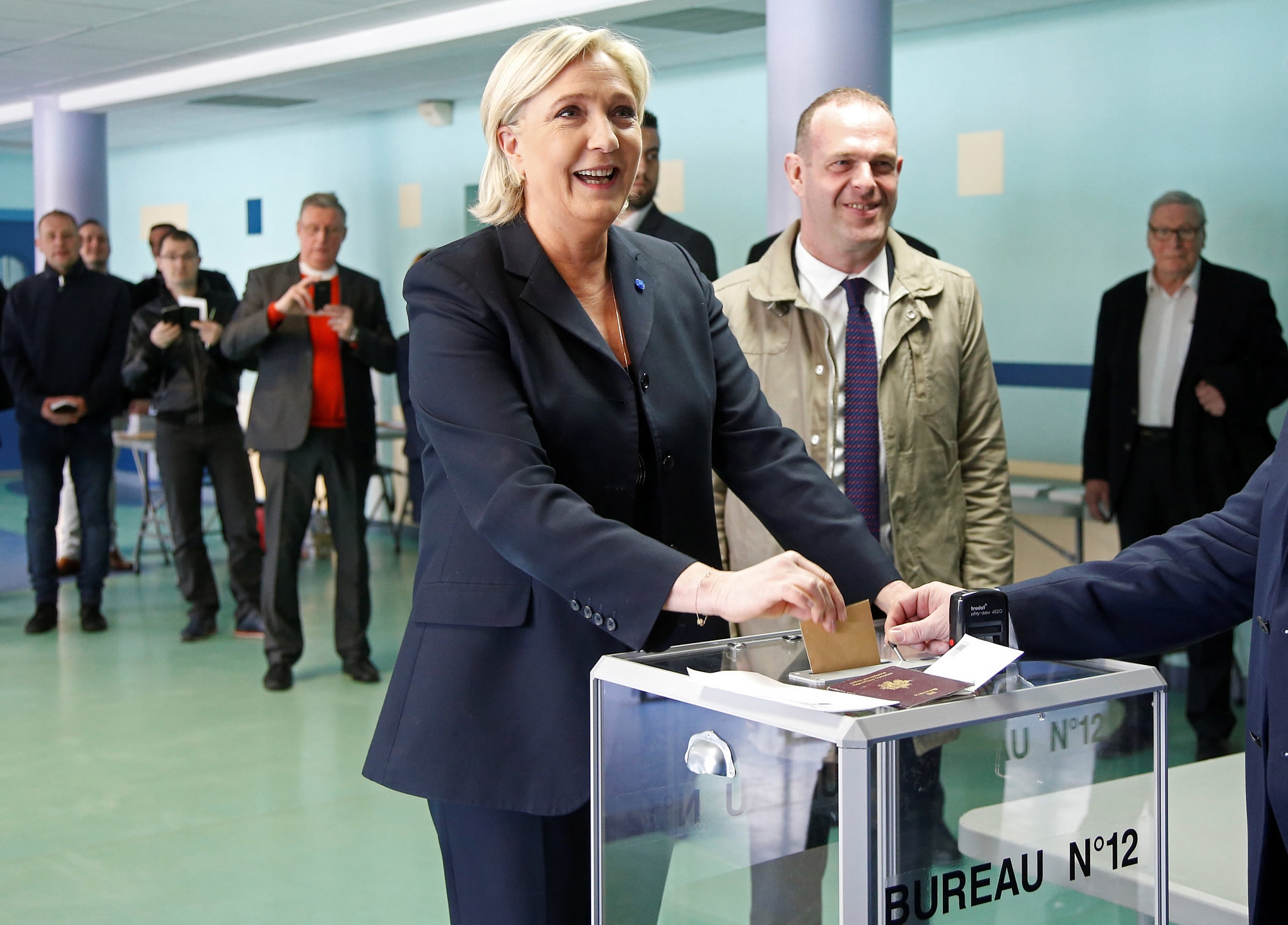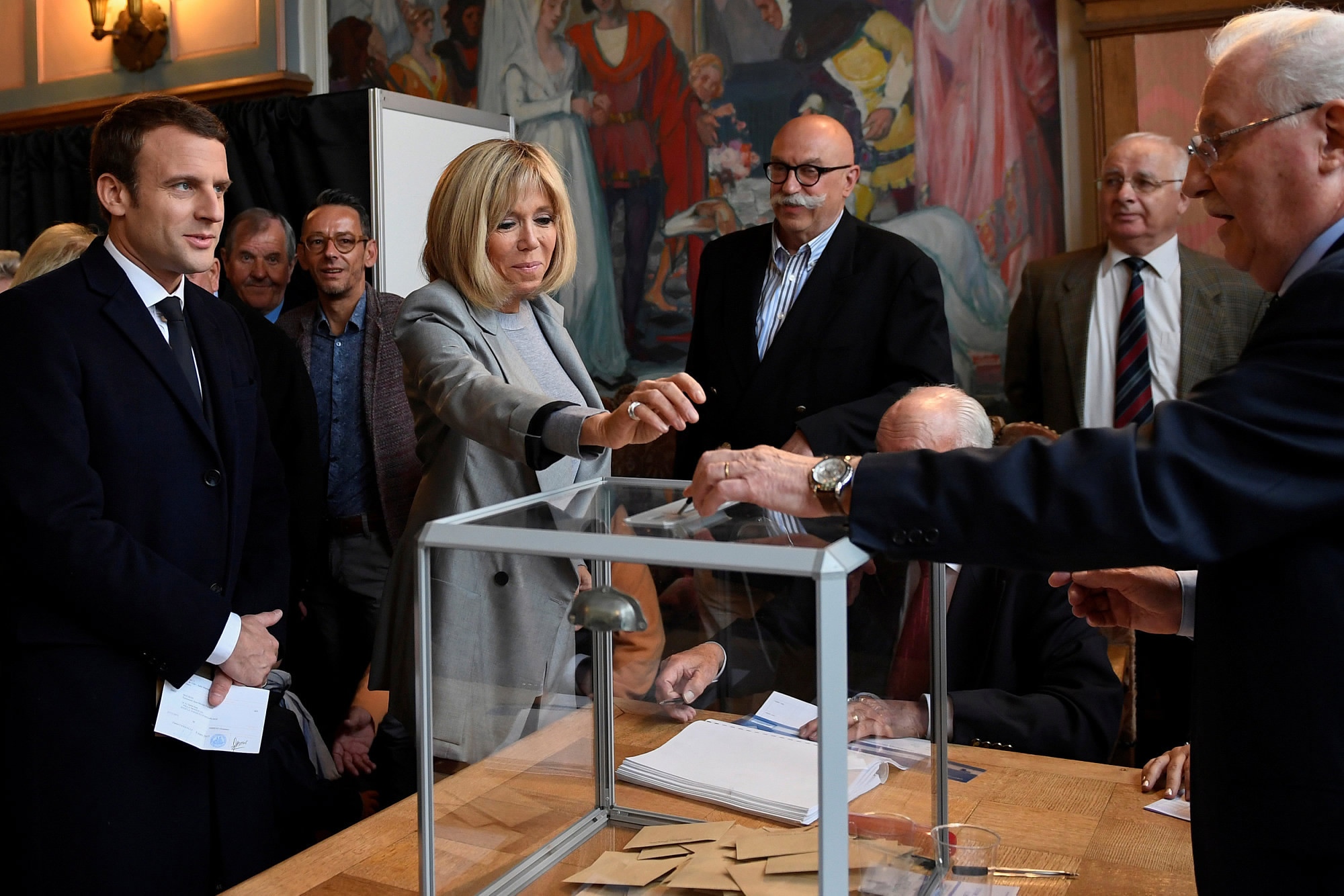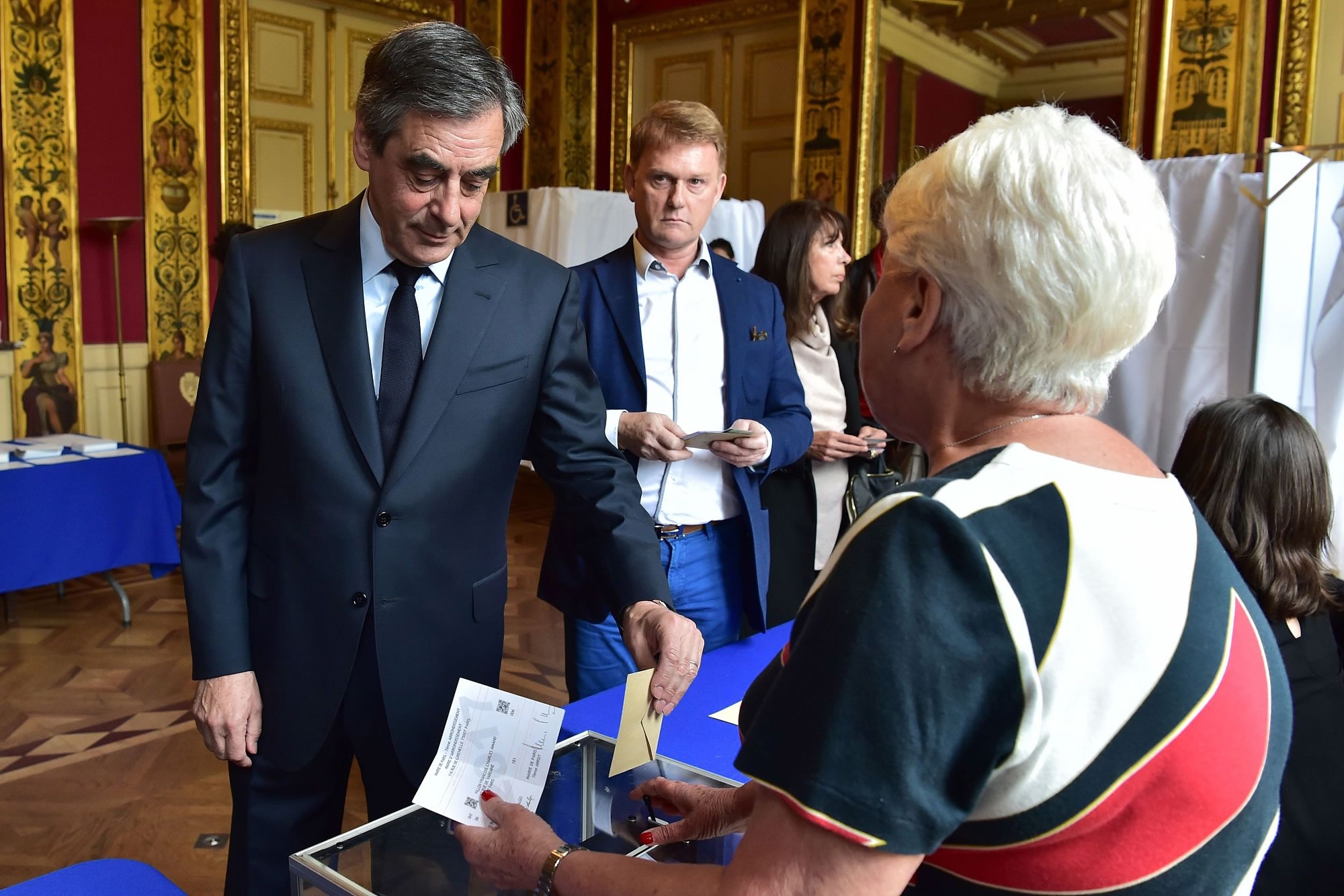Voters in France began casting ballots on Sunday under heavy security, in the first round of the most unpredictable presidential election in decades. The outcome could be pivotal to the futures of both France and the European Union.
Some 67,000 polling stations opened at 8 a.m. local time, (0600 GMT), and the last will close at 8 p.m. local time, with estimated results expected shortly afterwards.

Marine Le Pen (L), National Front (FN) candidate, casts her ballot in the first round of 2017 French presidential election at a polling station in Henin-Beaumont, northern France on April 23, 2017. /VCG Photo
Turnout by noon was 28.54 percent of the electorate, slightly up on the corresponding 2012 figure of 28.29 percent but down on 2007's 31.21 percent.
Far-right leader Marine Le Pen and centrist Emmanuel Macron are the favorites to progress to a run-off on May 7, but the result is too close to call in a deeply divided country.
Polls show scandal-tainted conservative candidate Francois Fillon, a former prime minister, and hard-left firebrand Jean-Luc Melenchon are also in with a fighting chance of finishing among the top two candidates and reaching the all-important second round.

Emmanuel Macron (L), head of the political movement En Marche, watches as his wife Brigitte Trogneux casts her ballot in the first round of 2017 French presidential election at a polling station in Le Touquet, northern France on April 23, 2017. /VCG Photo
Basic rules and procedures of the presidential election
In France, the head of state is elected directly by the people in a vote of one or two rounds.
If no candidate obtains an absolute majority in the first round, the two top will go through to a runoff on May 7, and the winner of that contest will be sworn in as president by May 14 at the latest.
Eleven candidates are vying for the top job. Nearly 47 million citizens are registered to vote, and more than 65,000 polling stations opened earlier this morning. The outcome will not be known until the polls close on Sunday night.

French presidential election candidate for the right-wing Les Republicains (LR) party Francois Fillon casts his ballot at a polling station in Paris on April 23, 2017, during the first round of the presidential election. /VCG Photo
France's roller-coaster presidential race
Closely watched around the world, the French campaign has been a roller-coaster ride of unpredictable twists and turns.
A race that began with the surprise nomination of Fillon as right-wing candidate in November shifted into a higher gear in December when unpopular Socialist President Francois Hollande decided not to seek re-election.
Hollande's five years in office have been dogged by a sluggish economy and a string of terror attacks that have cost more than 230 lives since 2015.
Fillon was the early front runner until his support waned after he was charged following accusations he gave his British-born wife a fictional job as his parliamentary assistant, for which she was paid nearly 700,000 euros (750,000 US dollars) of public money.
Though there are four main contenders in the election, a total of 11 candidates are taking part, most polling in single digits.
The candidate for the governing Socialists, Benoit Hamon, was a distant fifth going into the final weekend.
Stories of the five candidates

Focus shifts from economy to security
In the wake of the policeman's killing in Paris on Thursday, 50,000 police and 7,000 soldiers have been deployed around France to protect voters.
CGTN
Analysts believe an attack that occurred so late in the campaign could shift the focus from the economy to security, and hand an advantage to candidates seen as taking a hard line on the issue.
"If it were to benefit someone, that would clearly be Marine Le Pen who has dominated this issue throughout the campaign, or Francois Fillon," said Adelaide Zulfikarpasic of the BVA polling institute.
In the aftermath of the attack, Le Pen called for France to "immediately" take back control of its borders from the EU and deport all foreigners on a terror watchlist.
US President Trump tweeted that the shooting "will have a big effect" on the election.
Disappointed voters
CGTN
The four leading candidates have sharp differences on policies, yet there's hardly anything between them in the latest opinion polls.
The months of campaigning have been dominated by scandals which have left many voters agonizing over their choice.
In such a close-fought race, some 20 to 30 percent say they might not vote at all. And about 30 percent of those who plan to show up at the polling stations are unsure whom they will eventually give their support to.
"I don't like any of them, they're all disappointing," 73-year-old Ghislaine Pincont said in the northern city of Lille on Saturday.
"At worst, I'll cast a blank vote."









